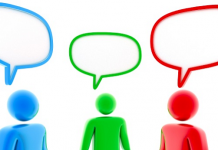A growing number of people are choosing to abstain from generative artificial intelligence (AI) – systems like ChatGPT and image generators – for ethical, environmental, and even cognitive reasons. Dubbed “AI vegans” by some, this movement reflects deeper anxieties about the rapid integration of AI into daily life and its potential consequences.
The Ethical Concerns: Theft, Exploitation, and Consent
The core argument against generative AI centers on its reliance on vast datasets scraped from existing creative works. Many artists, writers, and musicians feel their intellectual property is being exploited without consent. As one Czech artist, Bella, put it, using AI feels like a “betrayal” after years of honing her skills.
The ethics extend beyond copyright. Marc, an AI abstainer from Spain, frames generative AI as a tool for “worker exploitation,” arguing that it perpetuates capitalist systems at the expense of human creativity. These concerns aren’t unfounded: the training of AI models often relies on underpaid data labelers, particularly in countries like Kenya, raising questions about fair labor practices.
Environmental Impact: A Hidden Cost
Beyond the moral implications, generative AI has a significant environmental footprint. Even a short conversation with ChatGPT can consume the equivalent of a bottle of water, according to a 2023 study. This energy demand adds to the already substantial carbon footprint of data centers, making AI less sustainable than many realize.
Cognitive Effects: Dependence and Diminished Thinking
Emerging research suggests AI could also harm cognitive development. A recent study from MIT found that participants who used ChatGPT to write essays demonstrated lower brain engagement and struggled to recall their own work. Nataliya Kosmyna, a co-author of the study, warns this could erode ownership of ideas and compromise performance in high-stakes situations.
This dependence on AI for quick solutions raises fears about declining critical thinking skills. Lucy, another AI abstainer, worries that chatbots reinforce delusional ideas by providing constant validation, potentially exacerbating existing societal problems.
The Challenges of Abstinence
Avoiding AI is becoming increasingly difficult as it permeates workplaces, schools, and social media. Marc, a former AI cybersecurity professional, describes the pressure to use it at university and the “addiction to simplification” among his family members. Lucy faces similar challenges at her graphic design internship, where clients demand AI-generated content despite its flaws.
The Future of AI: Regulation vs. Prohibition
For some, like Marc, the solution is outright prohibition. Others advocate for stricter regulations that prioritize ethical sourcing and fair labor practices. Kosmyna believes generative AI should be banned for minors and not forced upon students in educational settings.
Ultimately, the “AI vegan” movement highlights the need for careful consideration of AI’s societal impacts. While some see its potential benefits, others are choosing to abstain, arguing that the costs outweigh the convenience.
The core message is clear: the awe of reality remains unmatched. The novelty of AI wears off, leaving behind a stark reminder that human creativity and critical thinking are irreplaceable.





















































